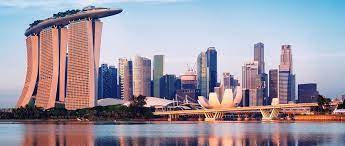From a punitive to public health drug approach
In May 2020, at the height of the COVID-19 pandemic, a man in Singapore was sentenced to death for a drug offense via a remote hearing on Zoom.
28 May 2021In May 2020, at the height of the COVID-19 pandemic, a man in Singapore was sentenced to death for a drug offense via a remote hearing on Zoom. This incident personifies the approach to drugs in Asia. Countries in Asia hold the unfortunate distinction of being among the most prolific users of the death penalty for drugs, and for having some of the most punitive drug laws in the world.

Despite the proven ineffectiveness of the death penalty as a deterrent to drug use or sale, its use for drug offenses has continued, with Bangladesh expanding the death penalty to cover the manufacture and trafficking of yaba (methamphetamine). Sri Lanka’s former President Maithripala Sirisena sought to reinstate the death penalty for drug traffickers last year, and Indonesia continues to hand out death sentences for drug-related offenses.
While executions sometimes receive media attention, much less is said of the plight of people on death row for drug offenses. At least 3,000 people convicted of drug offenses are languishing on death row. Government data is insufficient and inaccessible so the actual figure is likely to be much higher. Many of these people have been on death row for a decade or more, and hundreds more continue to be sentenced to death every year.
Drug policy in Asia has long been characterized by punishment. The region continues to aim for a “drug-free world” as seen in the drug policies of countries like Bangladesh, Indonesia, the Philippines, Singapore, and Sri Lanka, as well as regional organizations like the Association of Southeast Asian Nations. Rhetorically, leaders speak of drugs as a moral evil, reflecting and reinforcing negative—and even dehumanizing — attitudes toward people who use them.
The punitive drug policies in Asia are ostensibly aimed at reducing drug supply, but have disproportionately impacted people living in urban poor communities. In Bangladesh, 391 people were killed in extrajudicial killings in 2019 alone, and in the Philippines tens of thousands of people still continue to be killed and many others are jailed, orphaned, or widowed in the name of the drug war. Women who use drugs are particularly vulnerable to punishment, abuse, stigmatization, and human rights violations. In several countries in Asia, women constitute the fastest growing demographic group in prisons.
